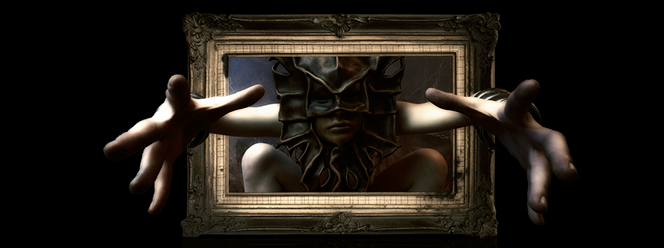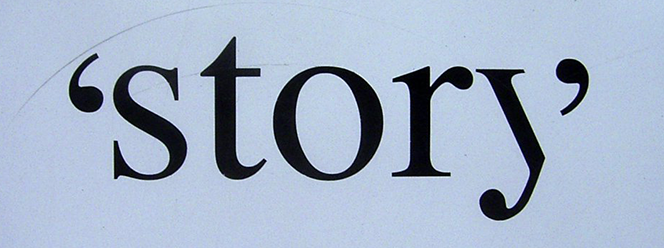
by Tara Joyce | Dec 16, 2016 | Self/Business Growth

It’s a risk. I’m afraid. What will you think of me? What will I think of me? If I tell my hidden truth?
I feel so ashamed. How could I show you that? I can not take the chance of showing my true face to you.
The idea of bearing it is terrifying. In fact, it is more than that, it is life threatening. My neediness threatens my life. It terrifies me. I don’t want to feel it.
I must protect from it. I can not need love. I can not show how I need you. I must protect who I truly am behind my performance of independence.
Why do I feel the truth in my heart is so ugly? So shameful? Why do I feel I must cover it up?
If you knew what was in me, if I showed it to you, I’d be under threat. From me. From you. From the weight of my unbearably inconvenient truth.
Yet if I can break through my fear and allow myself to be vulnerable, what lies on the other side? Could the very thing I fear so much be the very thing to set me free?
But of course. My life is not threatened by my vulnerability. Not anymore, at least. I’m now an adult, in charge of my life. I have the ability to unlearn the faux-protection granted by aloofness and lack-of-care, and allow myself to re-access the wholeness within me. With courage, I have what it takes to face the truth in my heart. I can be me. Vulnerable. Truthful. Completely me.
photo credit: emily mucha

by Tara Joyce | Jun 1, 2016 | My Journey | What's On My Mind

So good at the act that you forget what’s true.
So good at pretending that the unreal becomes real.
What you feel is under your control.
You can simply act it away.
A mask of neutrality.
Leads you to believe you might actually feel it.
You can ignore your feelings.
You can act forever.
Yet at some point, the inevitable curtain comes down, and the performance ends.
You are left with you; and the feelings you’re pretending aren’t there.
If only for a moment.
The act is over.
What then?
Who are you when your truth has space to be?
The question, terrifying.
Its answer even more so.
It lies in love and the shape of it.
What does your love and care look like when there is no performance to mask it?
photo credit: Ania

by Tara Joyce | Jan 27, 2016 | Cultural Creativity, Personal Branding, Self/Business Growth

In whatever shape it may take, whenever I hear a story, I find myself wondering how it is serving the person who is telling it. I understand what’s being presented is not the whole story, and perhaps, it’s not even half. It’s the version of the story the storyteller wants to share with me and it’s the version of the story they want to see.
We can have a lot of unconscious motivations and intentions behind the stories we tell, and while it would be lovely to think they are all pure and love-filled, this may not be true. We share stories to share a story—to share a version of events that we feel will be emotionally impactful. It’s not the truth per say, otherwise we might call it that.
I suppose I don’t put a lot of value on my own stories and those of others. They are there to entertain and educate, but to hold them as “the truth” and/or to hold my own experiences up to them in comparison, feels like a fool’s game. A story might sound complete but the truth is, it only contains the parts wanted to be shared, the parts that keep it intact and “true.” The whole truth is far more nuanced and complex than any story can tell.
Stories by their definition and essence are leading. They are meant to take you on a journey where the course has already been planned. We need to see stories as such, for our own health and happiness. We need to know they are not “the truth,” and are not intended to be. They are simply creations of our experience and our imagination, and how we need to perceive things. There is no need to attach to them.
Write your stories. Love your stories. And acknowledge them for “the truth” they are not. See the stories you attract—and are attracted to—for what they are: expressions of you, and how you perceive your world.
photo credit: duncan c

by Tara Joyce | Jan 15, 2016 | My Journey | What's On My Mind, Self/Business Growth

My emotions are not me.
They are my energy, in motion. I am not responsible for my emotions—I am responsible for what I do with them.
It’s interesting to me how much my feelings change, how much I am in a state of shifting emotion. This awareness affirms that in fact my feelings truly are in motion, and it affirms how unhelpful it is when I try to hold onto the energy they bring. My emotions are in motion for a reason, and attempting to control their movement, by stopping it and/or holding onto it, does nothing for me. In my attachment to my feelings, I miss their point.
9 seconds.
I read that our anger lasts for 9 seconds, unless we attach to it, catch on to it, get caught up in it. 9 seconds for the emotion to move through us, if we let it. 9 seconds for the wave to pass.
In motion for a reason.
My emotions rise and fall, never staying steady. They move around and they are hard to catch. Growing wiser to their pattern, I’m trying to not control my emotions so much. Instead, I’m trying to let them be. Instead, I’m learning to ride their rise and fall, letting them lap at the shore of my awareness and then retreat. Responsible to the inevitable motion of my emotions, I’m understanding it’s not what I feel that matters but how I handle it.
photo credit: Joschko Hammermann

by Tara Joyce | Dec 19, 2014 | Cultural Creativity

We share stories to share our voice and our perspective in a way we feel will be emotionally impactful. We craft our stories in a particular way, changing them each time we tell them. We craft them from our experience and imagination, and the beautifully unique way we each perceive our world. They’re not the truth, nor our truth. They are our stories.
It’s not even the whole story that we get the privilege of hearing or sharing with each other when we’re storytelling. It’s only a glimpse that we can see, and/or show in our moment of connection together. It might sound like the complete story I’m sharing but please believe me, it’s only part of a greater whole. The truth, my truth, is far more nuanced and complex than my story can share.
If our stories were our truth, we might call them that.
I love stories… but I don’t put a lot of energy into them. My stories and the stories of others are here to entertain, to persuade, to educate but to take them as “the truth” or to hold my own experiences up to them in comparison, is a game I’d rather not play.
I’d rather work on treating stories lightly, for my own health and happiness. They are not “the truth”, nor “my truth”. Our stories are a reflection of us and our own unique way of perceiving things. They’re our version of events. They’re our tools for connection, for empathy and for identity. They’re integral to us but they are not, and can not, be all that we are. We are so much more than our stories.
photo credit: Alessandra Di Nunno










